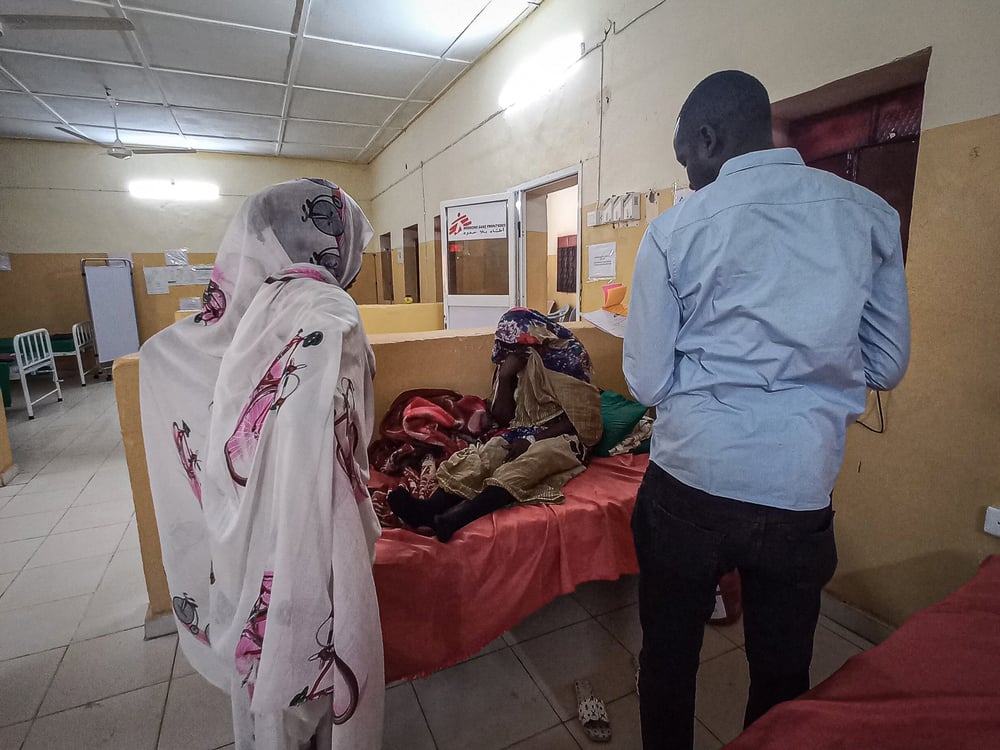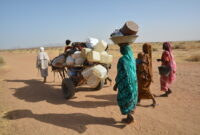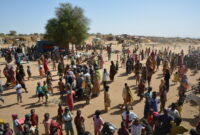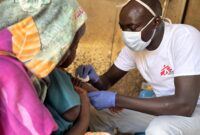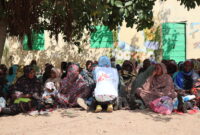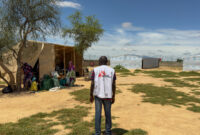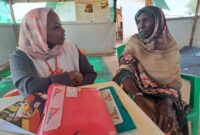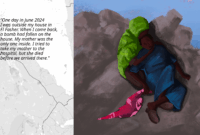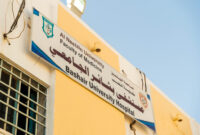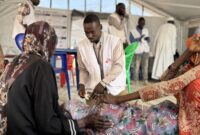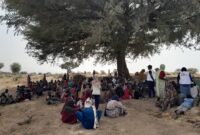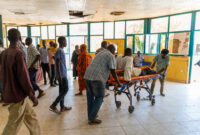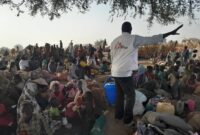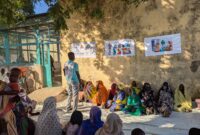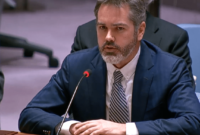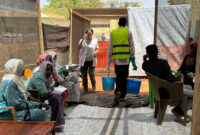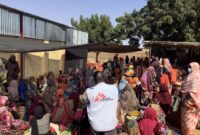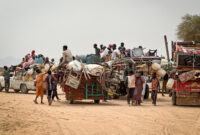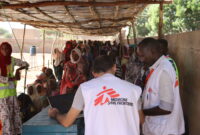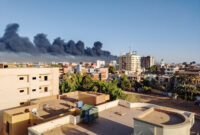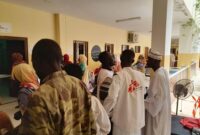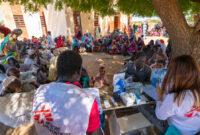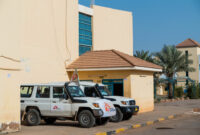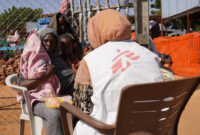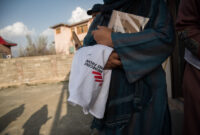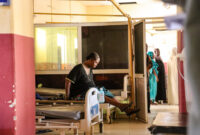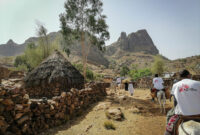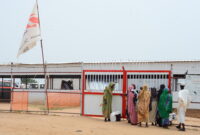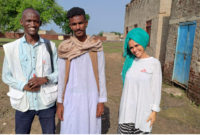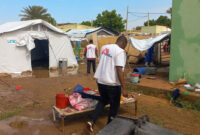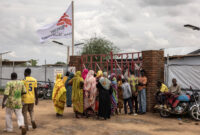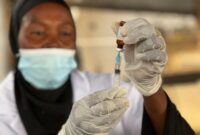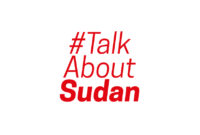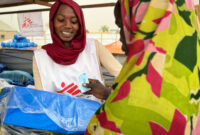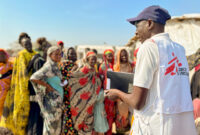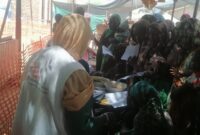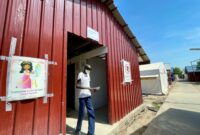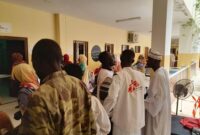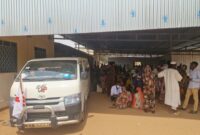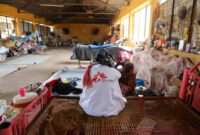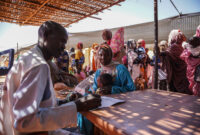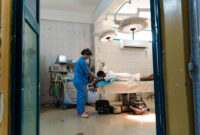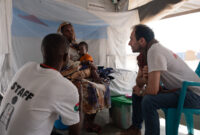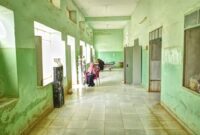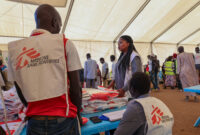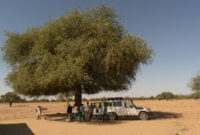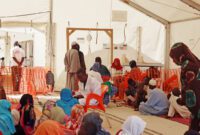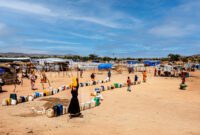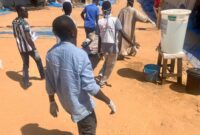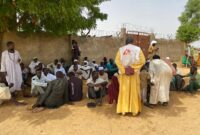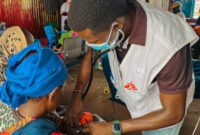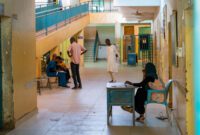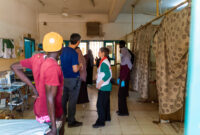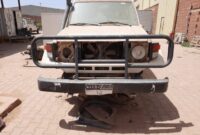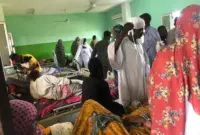Sudan: MSF supports wounded with medical teams and wounded trapped as intense fighting continues
Since Sat., April 15, intense fighting has been taking place between the Sudanese Armed Forces (SAF) and the Rapid Support Forces (RSF) in Khartoum and other parts of Sudan. Many people, including healthcare workers, are currently trapped. Where we are able to provide medical care, the situation is dire.
Update April 21: Since publication, we have so far received 354 wounded people and there have been 47 deaths.
Over the past 48 hours, Doctors Without Borders/Médecins Sans Frontières (MSF), the international humanitarian medical organization, has received a total of 136 wounded patients at the hospital we support in El Fasher, North Darfur – 11 have died from their injuries.
Cyrus Paye | MSF Project Coordinator
TWEET THIS:
“However, on Saturday afternoon, a small team of surgeons from the hospitals that had to close began carrying out surgical interventions in the hospital. So far, they have carried out six major surgeries on people wounded by the violence.
The hospital is rapidly running out of medical supplies to treat survivors. It is running out of medicines and blood. There has also been a power outage in the city since the beginning of the fighting, and fuel supplies for the hospital generator are also running low. We have received a list of surgical items that the surgical team urgently requires and we are seeking a safe corridor in order to transport these to the hospital using our two ambulances.
Due to the conflict, the airport has been closed since Saturday, and it is vital that it is re-opened so that we can bring in additional medical supplies and possibly an MSF surgical team to support the surgeons who are currently at work. Without these vital supplies, there will be further loss of life,” says Paye.
Elsewhere in the country, and especially in Khartoum, Darfur, North Kordofan and Gedaref states, MSF teams face serious challenges. MSF premises in Nyala, South Darfur, have been looted – including one of our warehouses. In Khartoum, most teams are trapped by the ongoing heavy fighting and are unable to access warehouses to deliver vital medical supplies to hospitals. Even ambulances are being turned back. They are not being permitted to pass in order to retrieve the bodies of the dead from the streets – or to transport those who have been injured to hospital.
We have been in contact with Sudanese medical teams in Khartoum and other parts of the country where wounded patients are being received. Many have been on duty for many hours, providing lifesaving care in extremely difficult circumstances, and despite the impact of the situation on them and their own families.
We are ready to provide supplies and medical personnel to key functional health facilities that need support, but it is too dangerous for anyone to move within Khartoum and other cities. Many people also cannot reach any of the health facilities that are open due to the ongoing violence and fear that they will be risking their safety.
MSF is making an urgent call for civilians to be protected from the ongoing indiscriminate and disproportionate attacks that are taking place. We urge all parties to the conflict to guarantee safety for medical staff and patients, so that they can access healthcare facilities without fearing for their lives. We additionally request that all parties to the conflict ensure that all health facilities – including hospitals, clinics, warehouses and ambulances – are protected. They should never be a target. MSF in Sudan provides impartial medical care to all those who need it, based on medical need alone, but currently, we cannot move due to the intensity of the conflict. We reiterate our plea for all those participating in the violence to respect medical personnel, health facilities and ambulances and to spare the lives of civilians and humanitarian workers.
